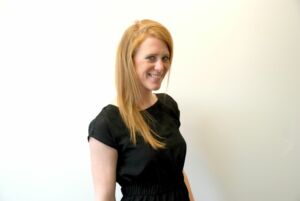Opinion
Dating the Danes | Boys who can shave
This article is more than 13 years old.

Last weekend I attended what at first glance would be considered an adult party.
But after 20 minutes of conversation with a Johnny Bravo look-a-like, I quickly realised I had overestimated the maturity of my present company.
Talking to him was like talking to a 26-year-old boy who’d just learned how to shave.
He was complaining that his lecturer had given him an extra class, that he was earning too much to get SU, that the apartment his parents had just bought him was rather small, and that his bolleven had called their arrangement off.
And while there was only one year between us, it felt like ten.
My days of carefree, deferring-responsibility living expired a long time ago. As a 25-year-old New Zealander, the topics weighing on my mind are work, paying taxes and how to save for a house.
However, the 20-something man-boys here don’t come home at night and complain about a hard day at the office − they come home and complain that their Friday bar was cancelled.
You see, in Denmark the combination of a free education, the societal push to take one, two or even three gap years to ‘find yourself’, and the ‘delay adulthood at all costs’ attitude has taken its toll on the male population.
Where I’m from, you have a degree by 22, your second job at 26 and a house by 29.
My rule of thumb here is if you’re dating men your own age in your home country, in Denmark you add five years and be prepared for the fact you may still have to show them how to write a CV.
I remember one such date with a rather dashing Dane. While I was aware he was 30, I was not aware of his full-time student status until the following conversation.
“Where are you going for the summer?”
“I was thinking of doing a month in Spain, back in time for Roskilde, then I’ll see my family in Jutland,” he replied.
“That seems like an awfully long holiday.”
“Well yeah, I’m studying so I have three months – how long do you get?” he enquired.
“Well as I’m working, I get six weeks, and in New Zealand I would get four.”
“Oh that’s not a lot,” he concluded with a rather horrified look.
I tried hard not to be offended at his blatant ignorance towards the working world, but it was all too much.
And half an hour later, he delivered the final nail in the coffin − he pulled out his student card and got 20 percent off the meal.
Let’s be frank: when I’m dating someone in their 30s, I expect them to be on some kind of payroll that isn’t SU.
About










































